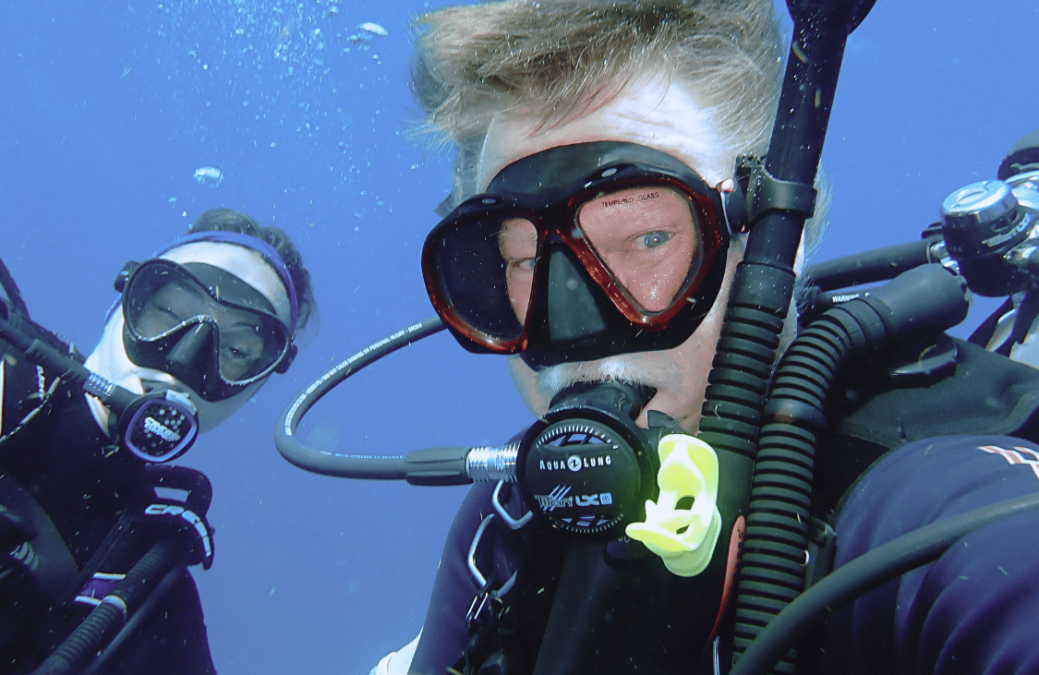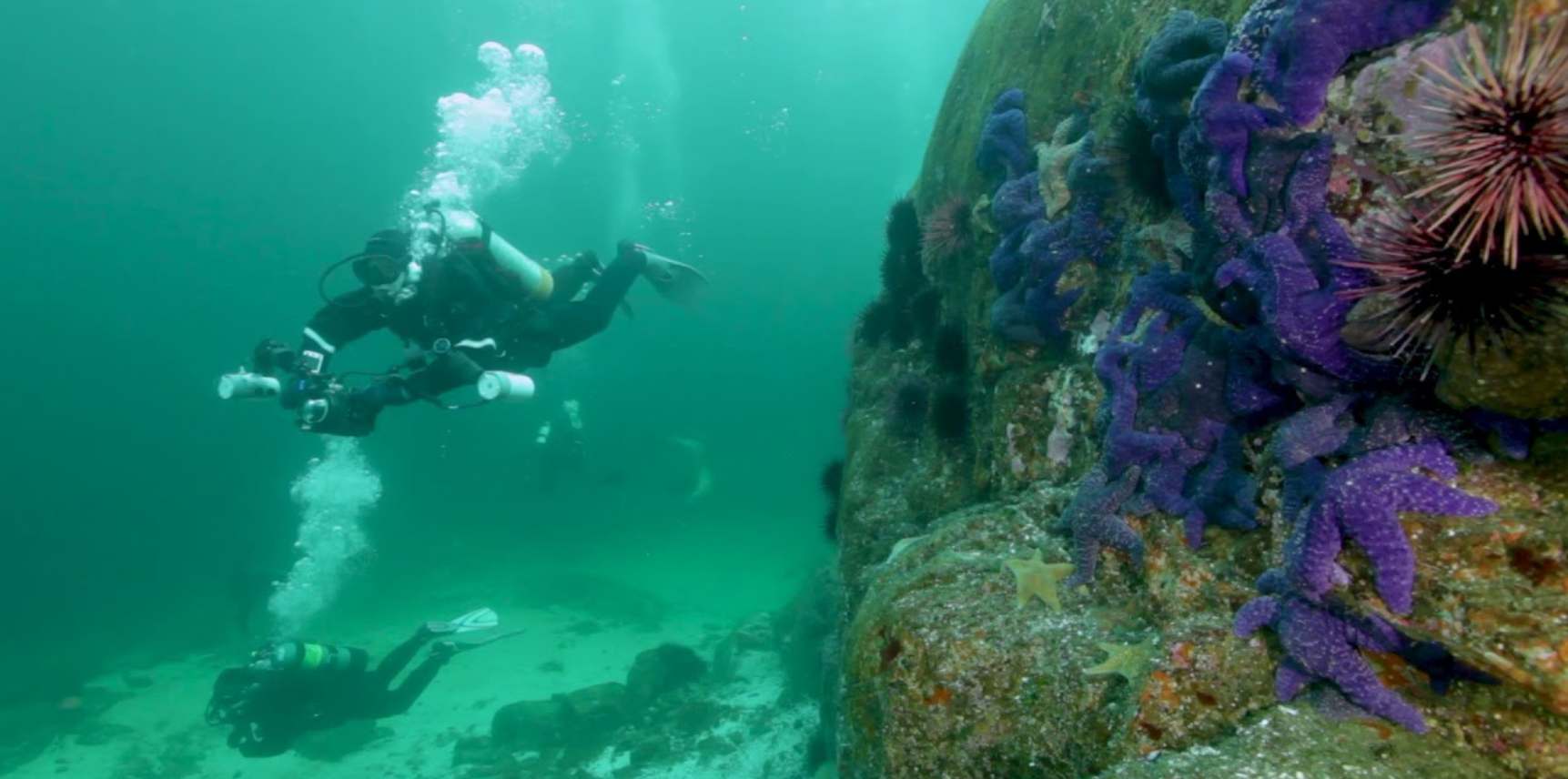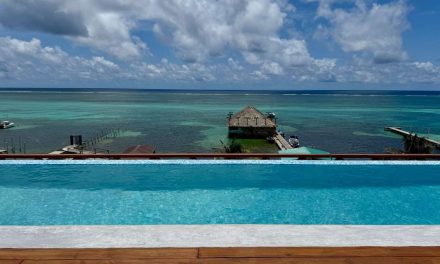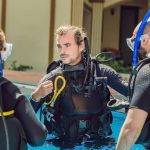What Is a Scuba Mentor and Why Are They Important?

Dive Mentor and Instructor Phil Smith
Becoming a scuba mentor is one of the most rewarding ways to share your love for diving. It allows you to give back to the diving community while helping others grow into safe, confident, and capable divers. A great mentor doesn’t need to be a professional instructor—what truly matters is a combination of personal dive experience, sound judgment, patience, and a genuine desire to support and guide others on their journey. Mentors play a crucial role in bridging the gap between formal training and real-world diving. They help newer divers gain comfort in the water, reinforce safety habits, and encourage a mindset of continuous learning. By sharing your knowledge, offering encouragement, and modeling good diving practices, you not only help others thrive—you become a cornerstone of a stronger, safer, and more connected dive community.
Who Can Be a Scuba Mentor? Recommended Requirements and Expectations
While anyone with the right experience and mindset can become a scuba mentor, it’s highly recommended that aspiring mentors have either been mentored themselves or are still part of a mentorship relationship. Learning from someone more experienced helps shape your own approach and gives you valuable insight into what good mentorship looks and feels like. This not only strengthens your skills but also builds empathy for the challenges new divers face.
Some of the best mentors are divers who have learned under the guidance of seasoned professionals—like Canadian Course Director Larry Wedgewood—who bring decades of global experience and a commitment to diver development. Having access to a mentor of that caliber not only elevates your own diving but helps you pass on those high standards, strong safety habits, and a deep respect for the underwater world to those you support.
Knowledge and Skills a Scuba Mentor Should Have
- Diving Experience and Knowledge:
- Extensive Diving Experience: A scuba mentor should have significant diving experience, including various types of dives (e.g., deep dives, night dives, wreck dives).
- Knowledge of Diving Techniques: They should be well-versed in advanced diving techniques and best practices.
- Understanding of Dive Equipment: Familiarity with different types of dive equipment and their proper use and maintenance.
- Safety and Emergency Procedures:
- Safety Protocols: A thorough understanding of diving safety protocols and emergency procedures.
- First Aid and Rescue Skills: Basic first aid and rescue skills, including CPR and emergency oxygen administration.
- Environmental Awareness:
- Marine Conservation: Knowledge of marine ecosystems and conservation practices.
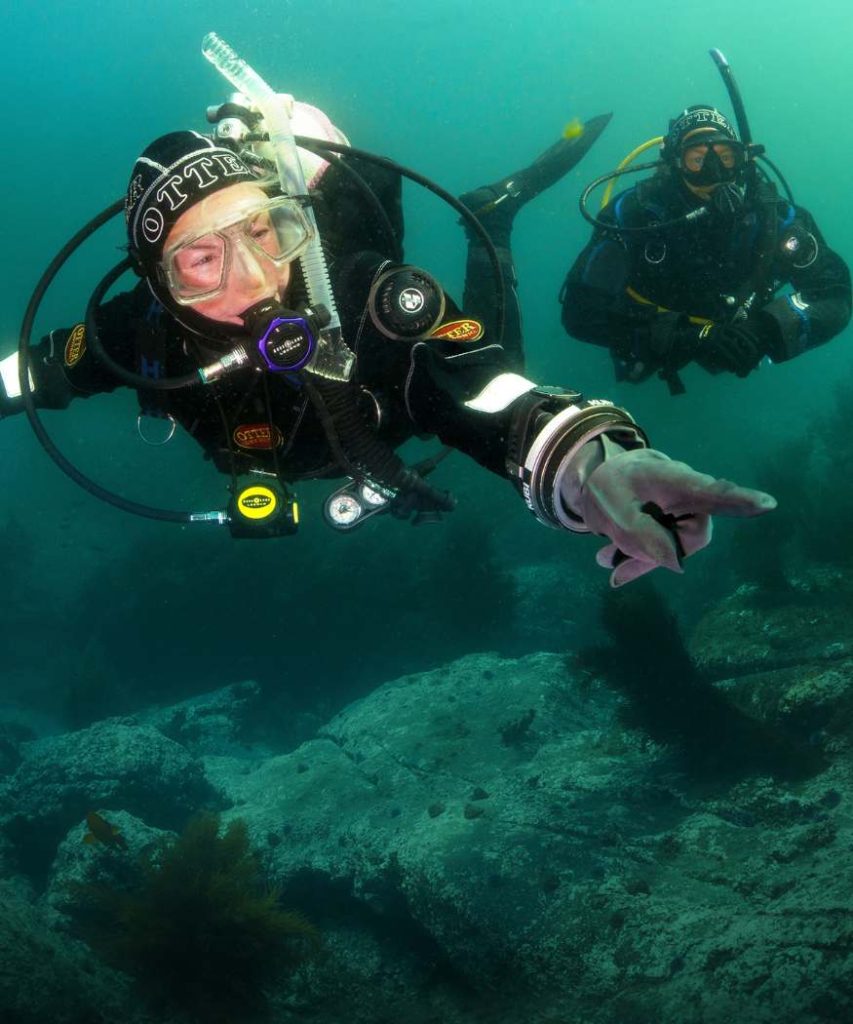
- Sustainable Diving Practices: Understanding and promoting sustainable diving practices to protect marine life and habitats.
- Marine Conservation: Knowledge of marine ecosystems and conservation practices.
- Communication and Interpersonal Skills:
- Effective Communication: Strong communication skills to clearly convey information and provide constructive feedback.
- Active Listening: The ability to listen actively and empathetically to understand the needs and concerns of mentees.
- Conflict Resolution: Skills in resolving conflicts and addressing sensitive topics diplomatically.
- Dive Leadership and Role Modeling:
- Leading by Example: Demonstrating responsible and ethical behavior both in and out of the water.
- Inspiring and Motivating: The ability to inspire and motivate mentees to achieve their goals and push their boundaries.
- Building Trust: Establishing and maintaining a trusting relationship with mentees.
- Personalized Guidance and Support:
- Tailored Coaching: Providing personalized coaching and support based on the individual needs and goals of each mentee.
- Goal Setting: Helping mentees set realistic and achievable goals for their diving journey.
- Progress Monitoring: Regularly assess and monitor the progress of mentees, offering guidance and adjustments as needed.
- Networking and Community Building:
- Connecting Divers: Facilitating connections between divers to build a supportive and inclusive community.
- Organizing Events: Organizing and participating in community events, dive trips, and conservation projects.
- Continuous Learning and Development:
- Staying Updated: Keeping up-to-date with the latest developments in diving techniques, equipment, and industry trends.
- Professional Development: Engaging in continuous professional development to enhance mentoring skills and knowledge.
Recommended Responsibilities of a Scuba Mentor
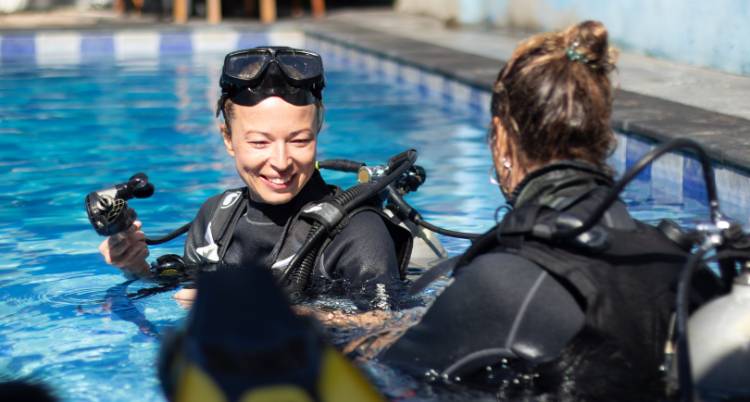
Dive mentoring poolside
- Providing Guidance and Support:
- Offer one-on-one coaching sessions tailored to the mentee’s goals.
- Provide ongoing support and encouragement to help mentees overcome challenges and build confidence.
- Promoting Safety and Best Practices:
- Ensure mentees understand and follow diving safety protocols.
- Teach and reinforce best practices for diving and equipment maintenance.
- Fostering Environmental Stewardship:
- Educate mentees on marine conservation and sustainable diving practices.
- Encourage participation in conservation projects and underwater cleanups.
- Encouraging Continuous Learning:
- Promote a mindset of continuous education and skill development.
- Recommend advanced courses, workshops, and training opportunities.
- Building a Supportive Community:
- Facilitate connections between divers and create a sense of community.
- Organize and participate in group activities, events, and dive trips.
- Providing Constructive Feedback:
- Offer constructive feedback on diving techniques and performance.
- Help mentees identify areas for improvement and provide practical advice.
- Serving as a Role Model:
- Demonstrate responsible and ethical behavior in all aspects of diving.
- Inspire and motivate mentees through positive actions and attitudes.
By embodying these qualities and responsibilities, a scuba mentor can significantly enhance the diving experience for their mentees, contribute to the growth and sustainability of the diving community, and promote a culture of continuous learning and environmental awareness.

